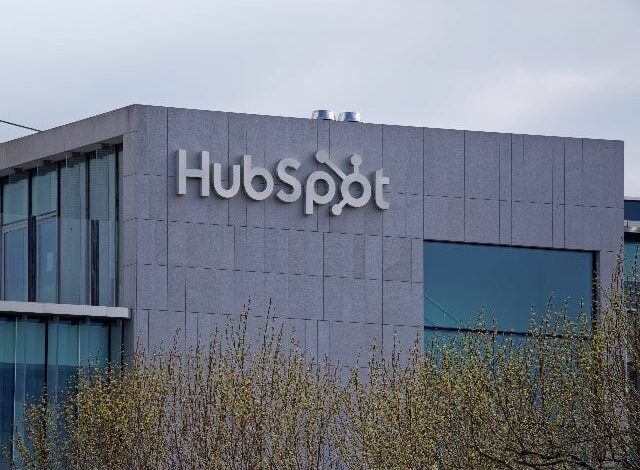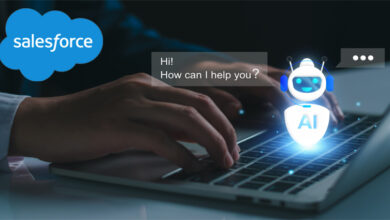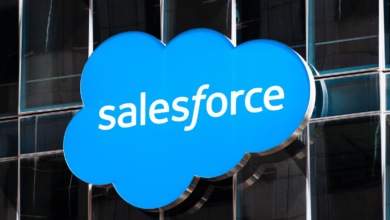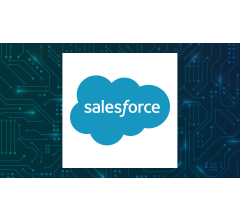Next Big Shake-up in Adtech and Martech?

Google parent company Alphabet is in talks to acquire marketing and CRM software provider HubSpot, according to a report today from Reuters.
And if pen’s put to paper on this one, it would likely blow away Google’s largest acquisition at $12.5 billion, when it acquired Motorola Mobility for its Android play in 2011. HubSpot, which went public in 2014, has a market cap closing in on $35 billion.
The acquisition would also shake up the adtech and martech world, combining major players in each software dynamic, and sets the stage for a new era of digital marketing and customer engagement: Google will challenge Microsoft and Salesforce in the $71 billion customer relationship management market. It would also mean the last of four long-lasting marketing automation firms being scooped up: Pardot (Salesforce), Marketo (Adobe) and Eloqua (Oracle).
“It’s the marriage of adtech, martech and CRM,” Zak Pines, VP, partnerships of Formstack, told CMSWire. Pines may have ultimately saw this coming in 2014 when he predicted a Google-Marketo acquisition, which is right in this ballpark. Marketo was a private-then-public marketing automation provider that competed with Cambridge, Mass.-based HubSpot but ultimately got acquired by Adobe in 2018.
“The title was ‘Why Google will buy Marketo,’ so I was off a little bit, but not bad for nine years ago,” Pines said. “… Google getting more into the marketing automation and CRM space, that’s pretty huge news.” Google will become more competitive with Salesforce through such an acquisition, Pines said, adding, “Google has their entire advertising business that longer term would be very complementary to the types of companies that HubSpot is serving with their products.”
When CMSWire reached out to HubSpot regarding the potential acquisition, a HubSpot spokesperson said, “As standard practice, HubSpot does not comment on rumors or speculation. We continue to focus on building a great business and serving our customers.”
HubSpot is an attractive acquisition target for Google, potentially bolstering its enterprise applications portfolio. It’s ease of integration with Google’s suite of office applications and its strong footing in marketing — complemented by Google’s analytics and search capabilities — make it a logical choice, according to Predrag (PJ) Jakovljevic, principal industry analyst for Technology Evaluation Centers.
“It makes sense for me that Google would get into the enterprise apps space with something not too complicated and that could integrate easily with Google Office apps,” Jakovljevic said. “HubSpot seems to fit that well. A nice way to compete with Microsoft, Salesforce, Adobe, Zoho, etc.”
HubSpot pioneered the inbound marketing concept and draws thousands to its annual show named after that marketing tactic. HubSpot is still strongest in marketing where Google Analytics and search can play a role, too, Jakovljevic added.
“Imagine using Hangouts for the meetings and calls with Google GenAI,” Jakovljevic said. “HubSpot is not strong in commerce, so not sure whether Google can help there. Not to forget moving HubSpot to Google Cloud. Also, Google will only get stronger with its data business. I might even go out on a limb and wonder whether Amazon will now buy Salesforce.”
Pines speculated that a Google-HubSpot acquisition could set up competition between Google and Adobe.
“I think that Adobe is playing in the space, but in a different way, because Adobe is enabling adtech teams with tools as well as martech teams with Marketo,” Pines said. “The difference being Google also is the media company. Because Google is where the purchasing and media is taking place. So it would be competitive, high level, with Adobe, but taking it on in a different way.”
Related Article: HubSpot and TikTok Announce CRM Integration for Enhanced Lead Generation
Google and HubSpot Have a History
Joshua Feinberg, CEO of Data Center Sales & Marketing Institute (DCSMI), noted that because Google Ventures was an early investor into HubSpot in 2011, “it’s super-interesting to see Alphabet’s interest.” HubSpot and Google already have several popular integrations, such as Ads, Search Console, Calendar and Gmail, Feinberg added.
Feinberg points to HubSpot’s burgeoning interest in podcasting and video, suggesting that incorporating YouTube’s capabilities could vastly expand the platform’s utility across the entire marketing and sales journey. “HubSpot has shown much greater interest in podcasting and video in recent years — both with its content engine/network and tools within its platform,” Feinberg said. “Incorporating the power of YouTube — imagine YouTube Studio, Shorts, Live, and Community — into HubSpot’s Social tools is exciting and with lots of potential. Many HubSpot customers have yet to fully explore the possibilities of video across the entire buyer’s journey/flywheel — spanning marketing, sales, content, commerce and service hubs.”
One are of potential friction Feinberg sees: HubSpot’s AI approach has, to date, depended on OpenAI, which is Microsoft-aligned. Does that change if Alphabet owns HubSpot with Gemini? HubSpot co-founder Dharmesh Shah is an OpenAI investor.
Feinberg also noted we’re coming into a post-cookie environment where attribution is so undefined. How will that work in a Google-HubSpot marriage?
Related Article: HubSpot Debuts AI Tools Fueled by OpenAI’s ChatGPT
What’s the Impact on HubSpot Customers?
Ace Bhattacharjya, CEO and founder of medicalrecords.com and a HubSpot customer, reports mixed feelings about this potential Google-HubSpot acquisition. As a Boston tech startup practitioner, he said, “It’s a great outcome for a great local company, but it’s yet another example of Boston companies that get bought by Silicon Valley.” Further, he said he thinks it’s interesting that Google is choosing to do this, despite the backdrop of Federal Trade Commission Chair Lina Khan’s “anti-Big Tech bias.”
Laurie McCabe, co-founder and partner for SMB Group, also cited potential blowback from antitrust regulators in a Google-HubSpot marriage. If it were to materialize, it would be interesting because Google has typically developed its apps organically, not through acquisitions, McCabe said.
“It may be that Google sees a good opportunity to acquire a leading marketing and CRM app for SMBs, and possibly tying this into its search advertising/trying to scale HubSpot growth exponentially,” McCabe said. “HubSpot has over 200K customers, but that is just a drop in the ocean compared to Google Workspace for business, which I believe is in the billions. Google could potentially include this in Workspace as a premium service.”
Talking nuts and bolts of technology, Bhattacharjya said Alphabet has an opportunity to roll this out as part of a more useful Google Workspace and could potentially add a lot of value to their SMB customers. “The reduced acquisition cost for HubSpot to get more Google Enterprise customers, not all of whom are “enterprise,” would be hugely valuable to both parties,” Bhattacharjya said. “The HubSpot app ecosystem already has hooks into many other smaller B2B companies that would also potentially get a shot in the arm.”
HubSpot is the last independent entity of the four big martech platforms in the early 2010s, according to Feinberg, who cited Eloqua, Pardot and Marketo as the others. “Both HubSpot founders were adamant about building a Boston-pillar company that would employ thousands for generations,” Feinberg said. “Does HubSpot’s U.S. headquarters stay in Cambridge? Does HubSpot’s legendary culture code remain intact? While the future remains uncertain, one can hope that if Alphabet were to acquire HubSpot, the outcome would resemble Microsoft’s acquisition of LinkedIn. A scenario where LinkedIn was granted significant autonomy to preserve its unique identity.”
Antitrust Hurdles Loom Over Google’s Potential Acquisition of HubSpot
As Google’s parent company Alphabet eyes a landmark acquisition of HubSpot, the deal not only promises to reshape the adtech, martech and CRM landscape but also sets the stage for a direct challenge to industry titans like Microsoft and Salesforce. With HubSpot’s pioneering stance in inbound marketing and its strong integration potential with Google’s suite, the acquisition could bolster Google’s enterprise application and data analytics offerings significantly.
However, amidst this potentially transformative alliance, the shadow of antitrust scrutiny looms large. And not everyone is a big believer in this mega deal ever happening.
“I find it highly unlikely this would happen,” said R “Ray” Wang, principal analyst & founder of Constellation Research, Inc. “But if it did, it seems like a logical transition from platform to apps.”



